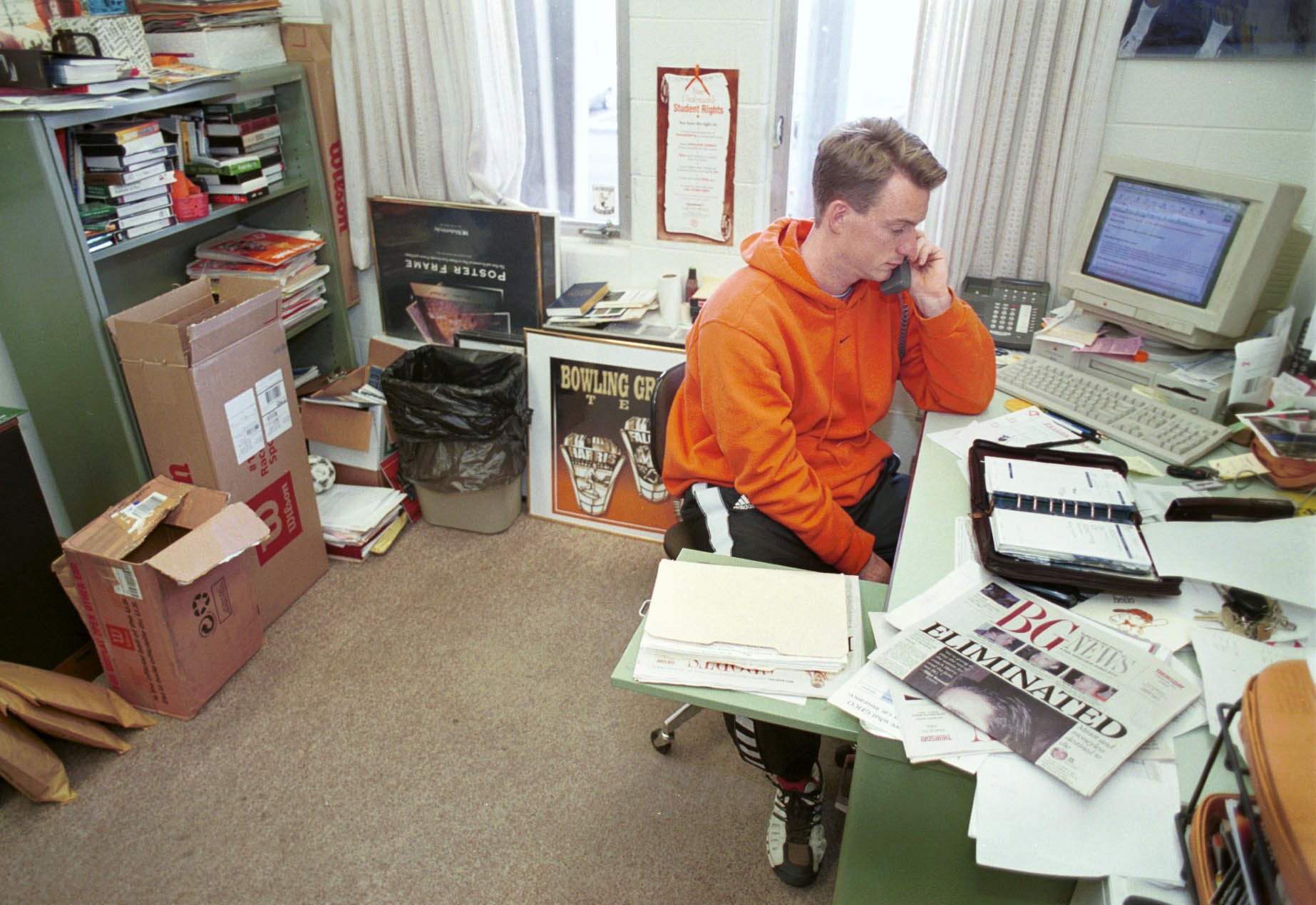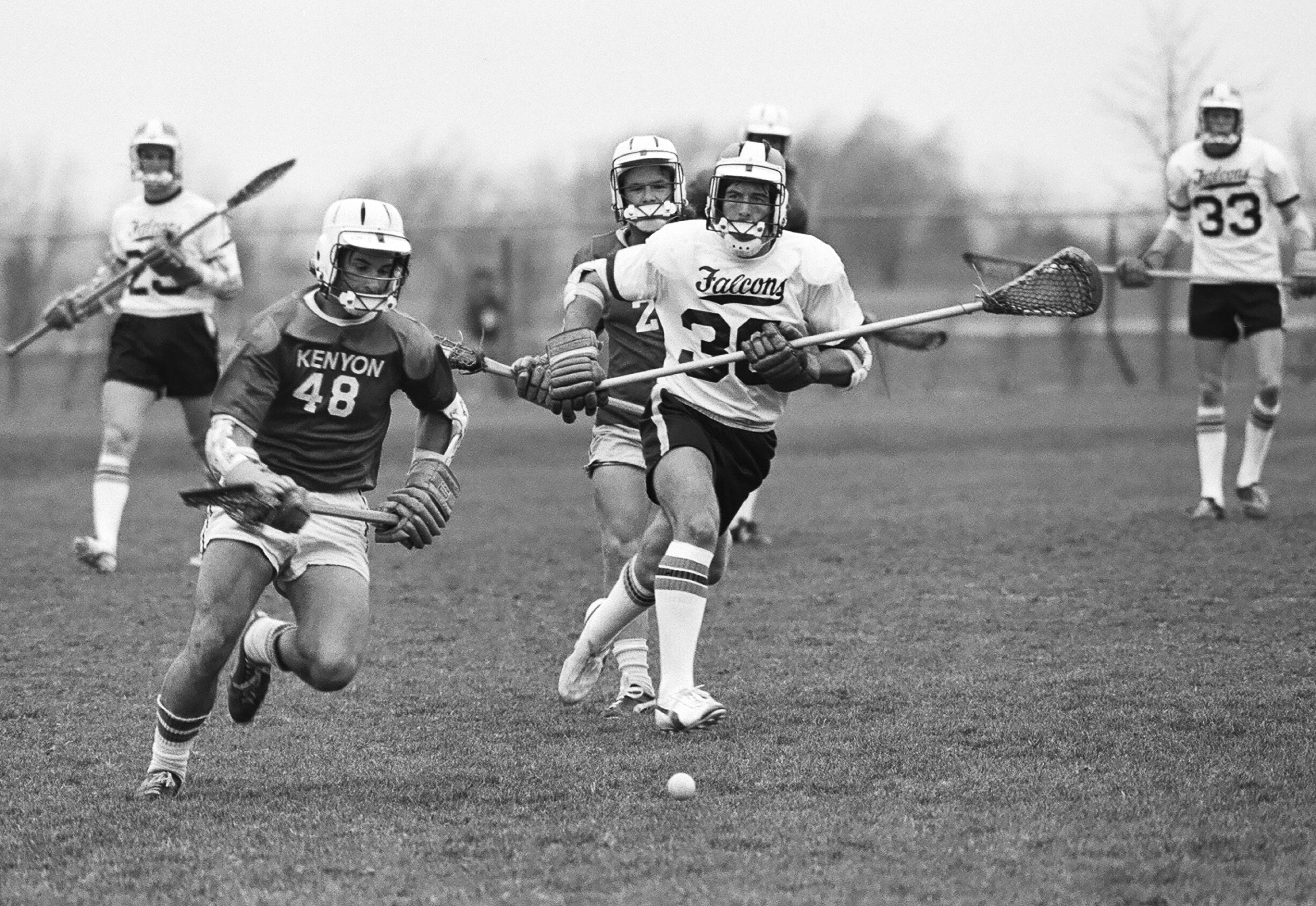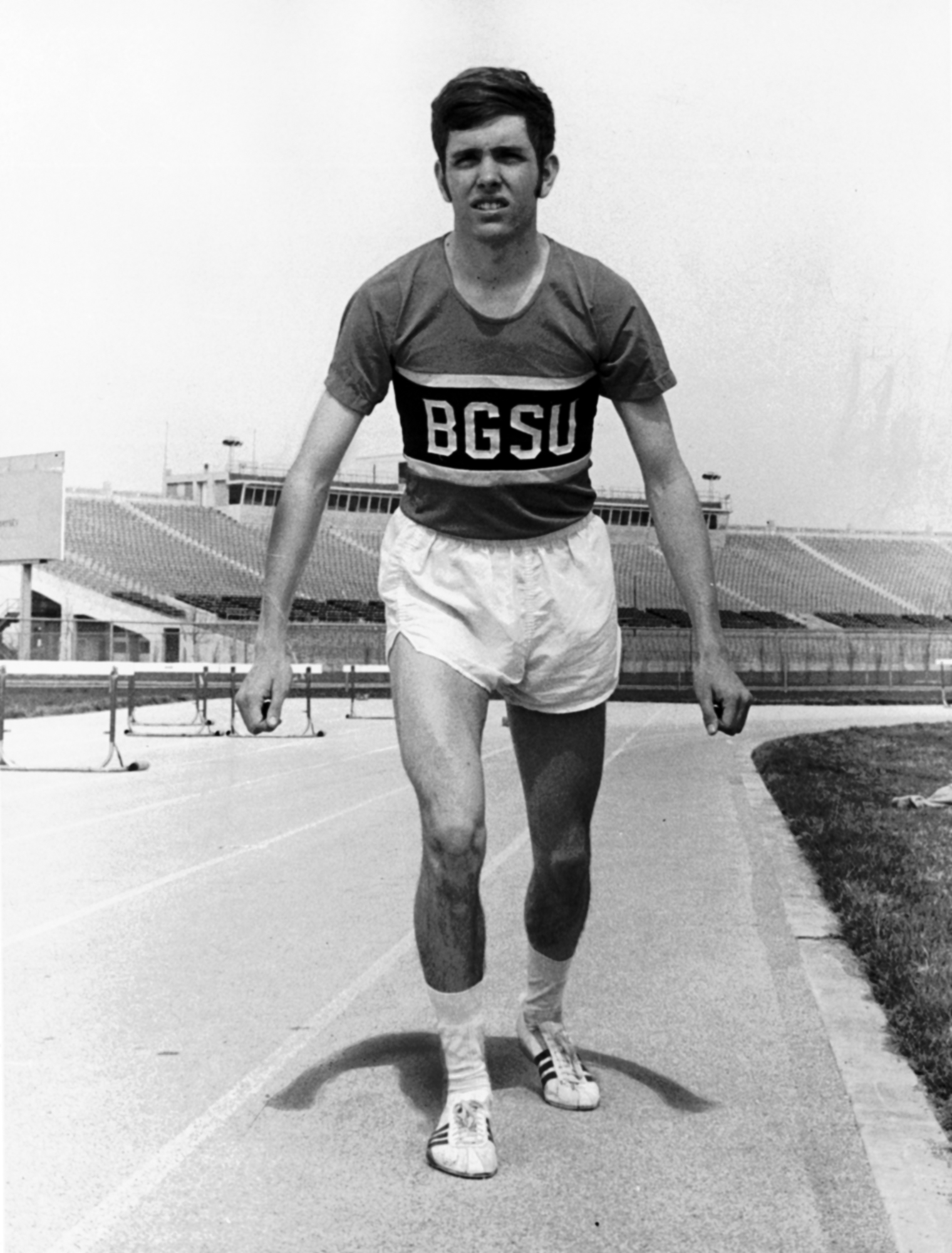Years later, pain of cutting sports still resonates at BGSU
School previously dropped two lacrosse teams, men’s tennis, men’s swimming, and men’s track.
By Nicholas Piotrowicz / The Blade
Fri, 22 May 2020 14:29:40 GMT
BOWLING GREEN — The great irony of Mike Wilcox‘s life is he ultimately was proven correct about his sport, yet watched it happen without his alma mater.
The former chairman of the board for the U.S. Lacrosse Foundation and Toledo businessman has spent much of his adulthood insisting that lacrosse could and would thrive in the Midwest, even when the game was played mostly by East Coast prep schools and colleges.
Indeed, lacrosse exploded in popularity during the past decade, especially. In addition to many new teams at the varsity level, multiple youth programs sprouted in northwestern Ohio. Lacrosse became a sanctioned OHSAA sport starting with the 2016-17 school year. Ohio State made a run to the national title game.
But it all happened long after Wilcox‘s school — once the premier Midwestern program — gave up on lacrosse. Over the years, the three-time All-American has had the same conversation over and over with people in the lacrosse world.
“They would say, ‘Where‘d you play?’ Bowling Green. ‘Oh, they have a team?’” Wilcox chuckled retelling the story. “Well, we used to.”
When Bowling Green State University announced it would discontinue baseball last week, it was a painfully familiar day for many former Falcons players and coaches who saw their teams cut by the university.
The school cut men‘s and women‘s lacrosse in 1979, then axed men‘s tennis, men‘s swimming, and men‘s indoor and outdoor track and field in 2002. None has returned. While men‘s cross country was spared, it is now a non-scholarship sport.
Hockey narrowly survived being cut in 2009, and on May 15, BG became, for the time being, one of two Mid-American Conference schools that does not field a baseball team.
In most cases, when a university eliminates a team, it‘s gone forever — and the deep wounds are carried for lifetimes.
“Really, I had so many great experiences and Bowling Green had done so much to help me, that was probably the greatest disappointment I‘ve ever had,” said Sid Sink, who earned nine All-American honors as a runner at BGSU.
Sink was part of the golden era of running at BGSU, and set the U.S. record in the steeplechase as a student in 1971. Along with teammate Dave Wottle, who won gold in the 800 at the 1972 Olympics, Bowling Green finished in the top 10 of the NCAA outdoor championships every year from 1969-71.
Then, after both graduated, the team still was talented enough to and add another top-10 finish the following season — joining perennial power Oregon as the only schools with four top-10 spots in those years.
When the sport was cut, however, Sink had to deliver the news to BGSU hall of fame coach Mel Brodt, a phone call Sink said “was one of the harder things I‘ve ever had to do.”
Wilcox said he has lacrosse teammates who have not and will not come back to BGSU. Some of Sink‘s fellow alums cut all ties with Bowling Green.
“There are some that never did heal,” Sink said. “Even for us who are still active and still do things, there‘s still a wound there. It‘s always there, I guess.”
Former Bowling Green men‘s tennis coach Jay Harris holds an ignominious unofficial record for ties to cut programs.
Harris, who now works for the John McEnroe Tennis Academy in New York, saw Ohio cut its team after his freshman season with the Bobcats. He finished his career at Cincinnati and coached at Miami as a graduate student, and both schools cut their teams while he was at BGSU.
Then, a year after being assured by former director of athletics Paul Krebs that tennis was safe, during the season he was named MAC coach of the year, and 10 days after the birth of his first child, Harris‘ team was axed with no forewarning.
“All of the sudden, this program that I put my heart and soul into was gone,” Harris said. “Then I had to think, ‘OK, I have all these guys on my team.’ They‘re devastated, and I of course knew what that felt like because it had happened to me as a player. Going through that as a player in some ways made it harder [as a coach] because I knew how bad it felt for those guys.”
Athletes in cut sports usually feel particularly aggrieved by the suddenness of the decision, a common thread among both current and former BGSU baseball players.
Wilcox cracked that his sport was cut by a university president who “didn‘t know a lacrosse stick from a fishing net,“ but also noted that there rarely is there public debate about cutting a team.
Wilcox compared it to a football coach leaving one school for another, during which most of the work is done behind the scenes and with little to no discourse.
“You announce it, then you‘re gone and your wife calls the Realtor that same day. Those are acrimonious things,” Wilcox said. “I think administrators don‘t want to debate, they just want to cut — and there‘s no good way to do it.”
However, for those who have been impacted, the sting never quite goes away. Harris said he continued to root for close friend Dan Dakich‘s basketball teams, but felt little for BG’s sports teams once Dakich was gone.
The topic of cut teams remains deeply personal for those who saw it happen.
Almost always, the loss of goodwill is permanent.
“I get a call from the University of Cincinnati to donate money, and every year I give them the same answer,” Harris said. “I always say, ‘If you bring back men‘s tennis, then I‘ll donate money.’
“I don‘t care if I‘m a millionaire, I‘m not donating a dime until that happens.”

In this 2002 photo, Bowling Green men's tennis coach Jay Harris talks on the phone as the headline on the front page of the BG News reads "Eliminated." Men's tennis, men's outdoor track and field, and men's swimming were eliminated.

Former Bowling Green lacrosse player Mike Wilcox was a three-time all-American who watched the sport's popularity explode, but only after lacrosse was long gone as varsity sport at BGSU.

Sid Sink set the American record in the steeplechase while at Bowling Green while teammate Dave Wottle won gold at the 1972 Olympics. The school no longer fields a men's track team.